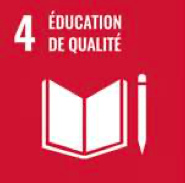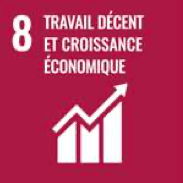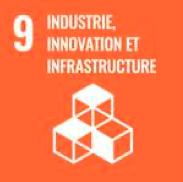Work and human activities
Here you'll find all the research relating to work and human activities carried out at CNRS Humanities & Social Sciences and its laboratories.
Research into work and human activities explores the profound changes that affect the forms, conditions and legal framework of work and social relations at work. A number of factors are behind these changes:
- the spread of digital technology and artificial intelligence - the "4th industrial revolution",
- the redistribution of production locations around the world which involves the conflicting dynamics of delocalisation and re-location combined with national sovereignty issues,
- the state of global resources,
- changes in consumption patterns and lifestyles particularly in relation to environmental concerns, social protection expectations and technical and technological innovations,
- workplace hierarchy models between employee autonomy and responsibility.
In 2022, CNRS Humanities & Social Sciences set up a Study Group on Work made up of researchers from different disciplines and research centres. Thierry Berthet, CNRS research professor and director of the Institute of Labour Economics and Industrial Sociology (LEST) (LEST, Aix-en-Provence) and Delphine Mercier, CNRS research professor and Deputy Director of LEST are in charge of coordinating this study group's work. The group has been tasked with mapping research on this subject, identifying priority themes and thought about the strategy that needs to be implemented to operationalise this priority subject and encourage collaboration between laboratories and between disciplines. The results of the group's work will be published in a white paper by the end of 2024.
In connection with this initiative, CNRS Humanities & Social Sciences has also joined with the IMÉRA to set up a chair on The Worlds of Work (2023-2024 and 2024-2025).
Finally, in 2023 CNRS Humanities & Social Sciences is financing the "RESTEZ” prospective network working on a social experiment aiming at creating a territory with zero long-term unemployment.



Research centers and networks
CNRS Humanities & Social Sciences laboratories
- Centre d’économie de la Sorbonne (CES)
- Centre de sociologie des organisations (CSO)
- Centre d’Étude et de Recherche Travail Organisation Pouvoir (CERTOP)
- Centre d’histoire sociale des mondes contemporains
- Centre de droit comparé du travail et de la sécurité sociale (COMPTRASEC)
- Centre de recherche critiques sur le droit (CERCRID)
- Centre d’Études et de Recherches Administratives, Politiques et Sociales (CERAPS)
- Centre de Recherches Sociologiques et Politiques de Paris (CRESPPA)
- Centre Internet et Société (CIS)
- Centre lillois d’études et de recherches sociologiques et économiques (Clersé)
- Centre Maurice Halbwachs (CMH)
- Centre Max Weber (CMW)
- Centre nantais de sociologie (CENS)
- Droit, religion, entreprise et société (DRES)
- Groupe de Recherche en Droit, Économie et Gestion (GREDEG)
- Institut de Recherche Interdisciplinaire en Sciences Sociales (IRISSO)
- Institutions et Dynamiques Historiques de l’Économie et de la Société (IDHES)
- Laboratoire d’anthropologie sociale (LAS)
- Laboratoire d’économie et de sociologie du travail (LEST)
- Laboratoire Interdisciplinaire pour la Sociologie Économique
- Laboratoire interdisciplinaire Solidarités, Sociétés, Territoires (LISST)
- Laboratoire PRINTEMPS (Professions, Institutions, Temporalités)
- TRIANGLE : Actions, discours, pensée politique et économique
Innovation and outreach
- The 'Worlds of Work' Chair: CNRS Humanities & Social Sciences has also joined with the IMÉRA in Marseille to set up a chair on this subject (2023-2024 and 2024-2025).
- Science and society: As regards technology transfer, CNRS Humanities & Social Sciences researchers are involved in the work of the Centre for Studies and Research on Qualifications (Céreq). The CNRS is represented on the Céreq's scientific council by Louis-André Vallet.
- DiplomAdvisor – GREDEG (Research Group in Law, Economics and Management)